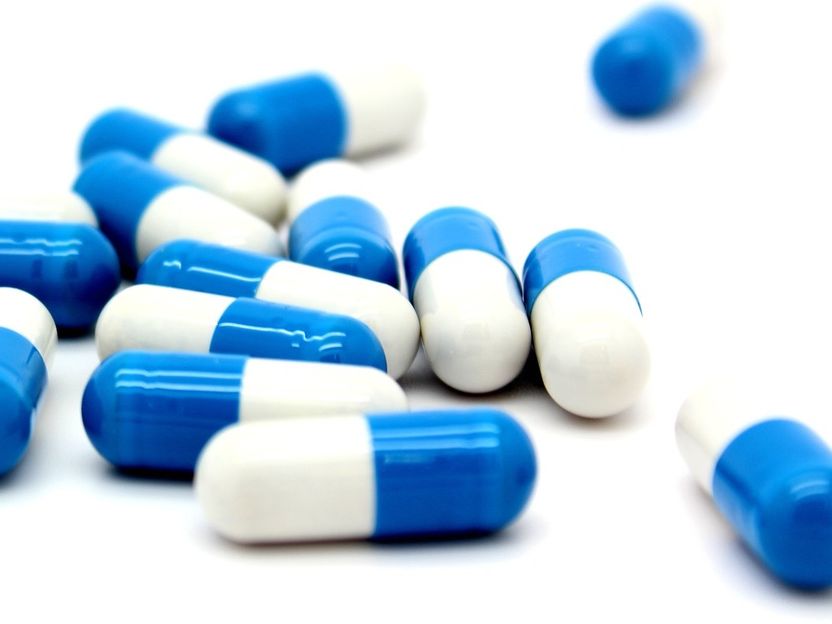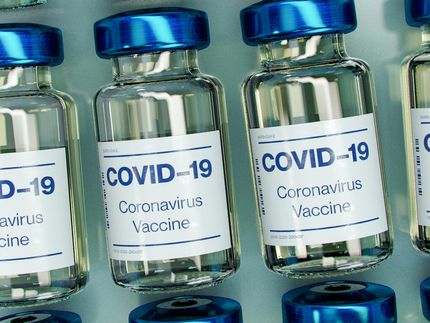Covid-19 vaccination without a shot?
Scientists at the University of Würzburg are working with a pharmaceutical company on a novel approach to oral vaccination against the coronavirus.
If Professor Thomas Rudel and the biopharmaceutical company Aeterna Zentaris GmbH have their way, there might be significant reinforcements in the fight against the global Corona pandemic in the future: a vaccination that is not administered by syringe but in the form of a capsule that can simply be swallowed. Preclinical development, which should pave the way for the first clinical trials on humans, has already begun.

Not an injection, but a capsule that can simply be swallowed: This is what vaccination against Covid-19 could look like in the future (symbol image).
pixabay.com
Thomas Rudel holds the Chair of Microbiology at the Julius Maximilian University of Würzburg (JMU). A good year ago, he came up with the idea for oral vaccination. His approach: "We use an approach that has already been in use for many years, millions of times over, as protection against typhoid infection". The oral typhoid vaccine is based on a specific strain of bacteria, Salmonella Typhi Ty21a.
Potentially strong immune response
Rudel and the scientists in his laboratory are now working with the same bacterial strain. However, with a significant modification: "We have programmed the bacteria to produce SARS-CoV-2 antigens," explains the microbiologist. Rudel was supported in this by microbiologist Dr. Birgit Bergmann. Protected in a capsule from the attack of gastric acid, the bacteria are expected to exert their effect in the human small intestine after passing through the stomach. The scientific approach assumes that the bacteria can present the antigens to the immune system there.
"Special cells in the intestinal wall are supposed to ensure that bacteria and the antigens are taken up by immune cells and transported further into lymphoid tissue," said Rudel. There, they could in turn activate other cells of the immune system - so-called B and T cells - and initiate an immune response. Rudel hopes that this immune response will be so strong that all human mucous membranes will be put on alert and coronaviruses will be prevented from entering the body.
Built-in safety anchor
There is a simple reason why the bacteria developed by Rudel's team will produce not one but two antigens: as has been shown in recent months, SARS-CoV-2 frequently mutates. This could mean that one antigen is only weakly effective if the virus has changed accordingly. The second antigen could therefore serve as a "safety anchor": It is based on a gene that has been shown to mutate only rarely.
Comparatively cheap to produce, easy to administer and relatively stable even at normal temperatures: these are a few advantageous properties that such a novel vaccine could possess when it reaches market maturity. If successful, this would also make it attractive for use in countries where it is difficult to ensure a cold chain with temperatures as low as minus 70°C without interruption.
Experience from previous vaccine development
Thomas Rudel and his team are developing the vaccine strains with the financial support of Aeterna Zentaris GmbH and will carry out preclinical work. Once the preclinical work has been successfully completed, the pharmaceutical company would be responsible for the subsequent clinical tests. Rudel is confident that the necessary approvals will be obtained relatively quickly. A few years ago, Aeterna Zentaris used a similar method to work on a prostate cancer vaccine that was about to enter clinical trials and was approved by the authorities for clinical testing. The team can now build on this experience.
Despite all the euphoria, Rudel warns that there is no guarantee that an oral vaccine against Covid-19 will soon be available in pharmacies. After all, many active substances have failed even at a late stage of development because they were not sufficiently effective or had unexpected and undesired effects. This risk always exists. Rudel is all the more eager to wait for the coming months.
Note: This article has been translated using a computer system without human intervention. LUMITOS offers these automatic translations to present a wider range of current news. Since this article has been translated with automatic translation, it is possible that it contains errors in vocabulary, syntax or grammar. The original article in German can be found here.























































